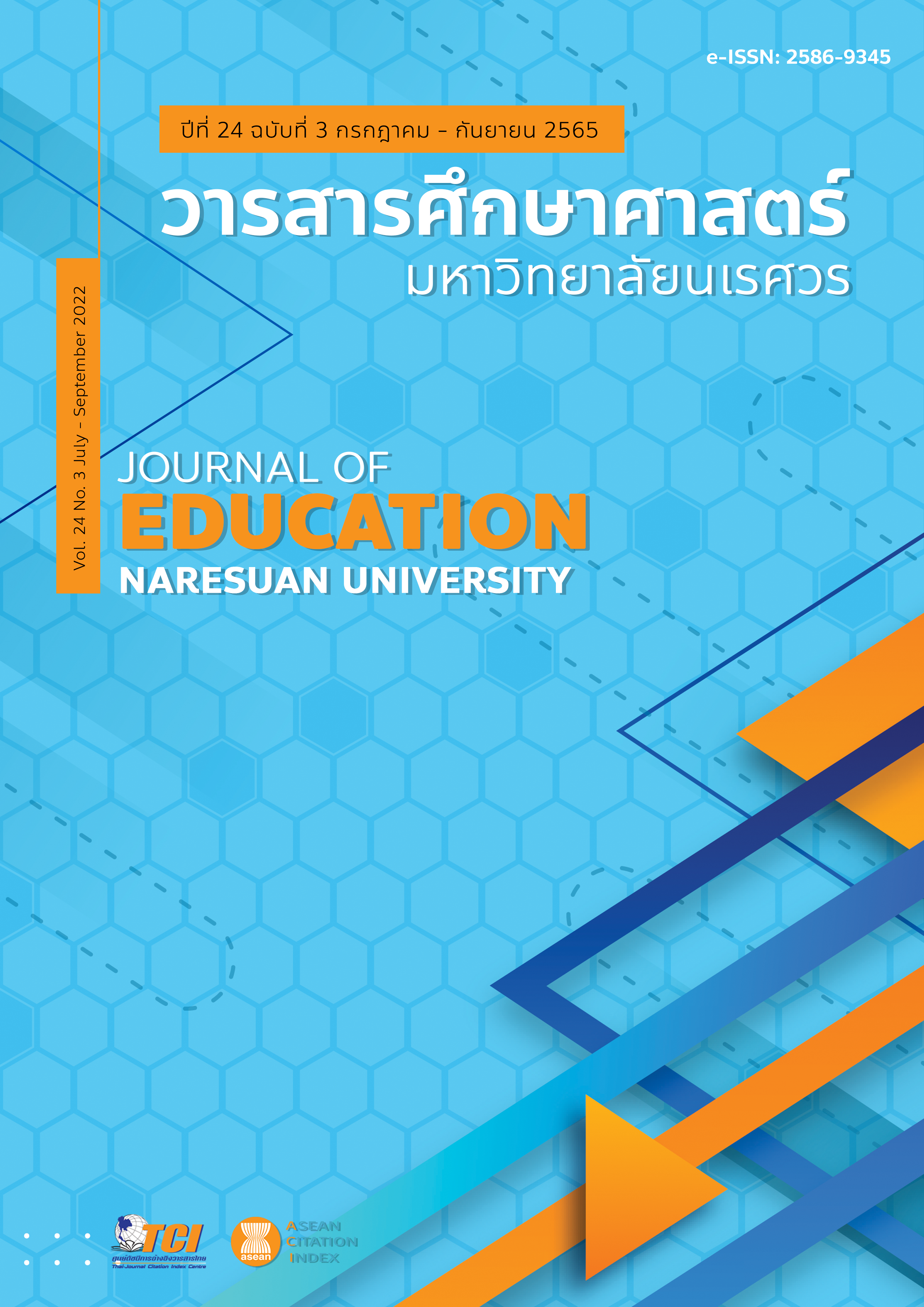A STUDY OF BASIC ELDERLY CARE NEEDS FOR CURRICULUM DEVELOPMENT TO ENHANCE THE HAPPINESS FOR AGING CARE-GIVERS การศึกษาความต้องการพื้นฐานในการดูแลผู้สูงอายุเพื่อการพัฒนาหลักสูตรเสริมสร้างความสุขสำหรับผู้ดูแลผู้สูงอายุ
Main Article Content
Abstract
A development of strengthen happiness curriculum by appreciative inquiry process for elderly care giver’ is actually the topic of this study. It has been divided into 4 phases; A study of basic elderly care needs for curriculum development, developing training curriculum for care-giver, implementing, and evaluating the curriculum. And this is the first phase which aims to find out basic elderly care needs for curriculum development. A qualitative research approaches. Data were collected by 2 focus groups discussion. The participants were recruited as the family care givers and the elderly care volunteers in the community,10 people in each group. The research instruments includes 2 brainstorming issues in group discussions were; 1) elderly care guidelines and 2) characteristics of elderly caregivers. Data were analyzed using content analysis. The result was as follows: Elderly care is a burden and a duty. The care includes physical, mental and social needs of person. As for the characteristics of the elderly caregiver was also found the elderly care-givers need practical knowledge and intimate consultant. For achieving the utmost benefit of training, the context knowledge has to be accordingly designed to elderly care-givers’ real-life context and elderly care practice.
Article Details

This work is licensed under a Creative Commons Attribution-NonCommercial-NoDerivatives 4.0 International License.
The owner of the article does not copy or violate any of its copyright. If any copyright infringement occurs or prosecution, in any case, the Editorial Board is not involved in all the rights to the owner of the article to be performed.
References
Archbold, P. G., Stewart, B. J., Greenlick, M. R., & Harvath, T. (1990). Mutuality and Preparedness as Predictors of Caregiver Role Strain. Research in Nursing & Health, 13(6), 375-84.
Artsanthia, J., & Kampraw, P. (2014). Modality of care for the older adults in community. Journal of The Royal Thai Army Nurses, 15(3), 123-127. [in Thai]
Bloom, B. J., Engelhart, M. D., Furst, E. J., Hill, W. H., & Krathwohl, D. R. (1956). Taxonomy of educational objectives: Handbook I: cognitive domain. New York: David McKay.
Caffey., R. A. (1991). Family caregiving to the elderly in Northeast Thailand: Changing pattern (Doctoral dissertation). Oregon: University of Oregon.
Eiamsamai, S., Muansit, R., & Thongmak, C. (2014). Elderly care model of elderly caregiver volunteers in Prugrang Subdistrict Municipality Phra Phutthabat District Saraburi Province. Journal of Nursing, Ministry of Public Health, 22(3), 77-87. [in Thai]
Jitmontri, N. (2009). A good model of caring for the elderly of families in the urban area and Bangkok (Research report). Bangkok: Health Systems Research Institute. [in Thai]
Kunnarong, O., Thanawattanon, P., & Roongrote, L. (2012). Readiness to look after family relationships and stress in care-givers role among Muslim patients with stroke. Journal of Humanities and Social Sciences, Princess of Naradhiwas University. 4(1), 14-27. [in Thai]
Lee, M. (2008). Caregiver stress and elder abuse among Korean family caregivers of older adults with disabilities. Journal of Family Violence, 23, 707-712.
Punyathorn, K. (2014). Caring for the elderly of family caregivers Ban Nong Takai, Mueang District, Udon-Thani Province. Journal of Nursing and Health Care, 32(4), 33-38. [in Thai]
Purasiri, R. (2018). Volunteers to take care of the elderly.Bang Si Thong Subdistrict, Nang Cone District, Nonthaburi (Master thesis). Bankok: Chandrakasem Rajabhat University. [in Thai]
Rubruenjane, S. (2016). Factors predicting elderly care behavior of caregivers in Warin Chamrap District, UbonRatchathani Province. Journal of Nursing Public Health and Education, 17(2), 70-84. [in Thai
Saatsat, S., Chuwattanapakon, T., Phakdiprom, T., Lertrat, P., & Arunsaeng, P. (2009). Study of the long-term care center for the elderly in Thailand. Nonthaburi: Public Health Research Institute. [in Thai]
Riablershirun, S., & Kespichayawattana, J. (2018). The effect of problem solving approach program on stress of family caregivers taking care of stroke survivors. Journal of The Police Nurse, 10(1), 21-29. [in Thai]
Wirojrat, W. (2014). Development of a health service system for dependent seniors. Journal of Nursing Council, 29(3), 104-115. [in Thai]
Yamsri, R. (2010). Development of public health volunteers to care for the elderly with chronic diseases Rangsit Municipality Thanyaburi, Pathum Thani Province (Master thesis). Khon Kaen: Khon Kaen University. [in Thai]


